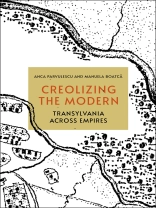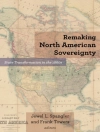How are modernity, coloniality, and interimperiality entangled? Bridging the humanities and social sciences, Anca Parvulescu and Manuela Boatcă provide innovative decolonial perspectives that aim to creolize modernity and the modern world-system. Historical Transylvania, at the intersection of the Habsburg Empire, the Ottoman Empire, Austria-Hungary, and Russia, offers the platform for their multi-level reading of the main themes in Liviu Rebreanu’s 1920 novel Ion. Topics range from the question of the region’s capitalist integration to antisemitism and the enslavement of Roma to multilingualism, gender relations, and religion. Creolizing the Modern develops a comparative method for engaging with areas of the world that have inherited multiple, conflicting imperial and anti-imperial histories.
Cuprins
Introduction
1. The Face of Land: Peasants, Property and the Land Question
2. Transylvania in the World-System: Capitalist Integration, Peripheralization, Antisemitism
3. The longue durée of Enslavement: Extracting Labor from Romani Music
4. (Dis)Counting Languages: Transylvanian Interglotism between Hugo Meltzl and Liviu Rebreanu
5. The Inter-imperial Dowry Plot: Nationalism, Women’s Labor, Violence against Women
6. Feminist Whims: Women’s Education in an Inter-imperial Framework
7. God Is the New Church: The Ethnicization of Religion
Despre autor
Anca Parvulescu is a professor of English at Washington University in St. Louis. She is the author of Laughter and The Traffic in Women’s Work.Manuela Boatcă is a professor at the Institute of Sociology and Head of School of the Global Studies Program at the University of Freiburg, Germany. She is the author of Global Inequalities Beyond Occidentalism and co-editor of Decolonizing European Sociology.












